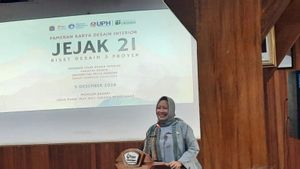JAKARTA - Kaspersky experts ICS CERT have uncovered a critical vulnerability in Unisoc's system-on-chip (SoC), which allows unauthorized long-distance access.
The vulnerability identified with the CVE-2024-3942 and CVE-2024-39431 codes threatens devices such as smartphones, tablets, vehicles, and telecommunications systems in various regions, including Asia, Africa, and Latin America.
Research shows that attackers can bypass security mechanisms, access device kernels, and execute code without permission.
Kaspersky said that the perpetrators behind this attack used direct Memory Access (DMA) access to avoid the protection of the Memory Protection Unit (MPU).
The method is nearly similar to the APT Operation Triangulation campaign, which Kaspersky has revealed. Where this attack technique has the potential to be exploited by enemies with a much more complex and more sophisticated technicality.
"SoC security is a complex problem that requires careful attention to chip design principles and overall product architecture," said Evgeny Goncharov, head of Kaspersky ICS CERT.
SEE ALSO:
After reporting this vulnerability to related parties, Kaspersky praised Unisoc's quick response for soon developing a security patch for the vulnerability.
Because according to the global cybersecurity company, many chipmakers prioritize confidentiality around how their processor internal works to protect their intellectual property.
"Our research underscores the importance of fostering more collaborative relationships between chipmakers, end product developers, and the cybersecurity community to identify and reduce potential security risks," he said.
The English, Chinese, Japanese, Arabic, and French versions are automatically generated by the AI. So there may still be inaccuracies in translating, please always see Indonesian as our main language. (system supported by DigitalSiber.id)

















